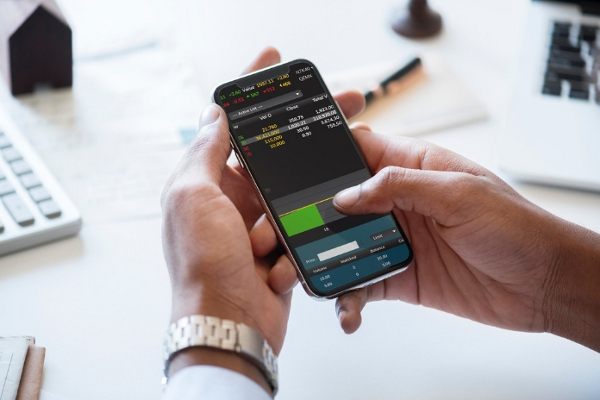What is Intraday trading?
Intraday trading involves buying and selling of shares on the same day itself. The purchase and sale of the stock take place within the trading hours of the respective stock exchange. In this case, shares are not purchased for investment purpose but for making profits according to the movement of the indices. To be able to execute intra-day trading transactions, an online trading account is required. It allows the investor to specify a particular order meant for intra-day trading and squares-off the order before the ending of the trading hours in the exchange. In some cases, people refer to it as “Day Trading” as well.
To earn a sizeable profit through intraday trading, investors need to deal in sale and purchase of a large number of shares. This exposes them to certain inherent market risks such as price volatility.
What Are Intraday Trading Brokerage And Other Associated Charges?
While trading in stocks in India, several charges have to be borne by the investor. In addition to the standard charges such as Brokerage and Securities Transaction Tax (STT), there are several other charges applicable on Intraday trading. Here are all the different applicable charges: –
Brokerage: As the name suggests, the brokerage is the commission charged by the online trading platform provider against the services extended. Usually, the brokerage has to be paid both at the time of purchase as well as the sale of shares. Certain brokers charge commission only on one aspect of the transaction, i.e. either sale or purchase.
The percentage of brokerage charge payable against a transaction depends on the kind of broker chosen. In case of a full-service broker that offers a full range of trading services, brokerage charge is payable in the form of a certain percentage of the value of the transaction. If the broker is a discount broker, who offers only the execution platform for intraday trading, there is a fixed transaction charge applicable to the trader.
Securities Transaction Tax (STT): This is another prominent charge levied on intraday trading of shares. In case of intraday trading, STT is payable only at the time of selling of the shares. The amount of STT payable against intraday trading of shares is around 0.025% of the total sale value.
GST: Goods and Services Tax (GST) would be applicable on the amount of brokerage that has been paid by the trader to the broker. At present, 18% GST is applicable on intraday trading transactions.
Stamp Duty: Stamp duty is levied by the respective state in which the exchange is located. Stamp duty can be different for different states. In the case of intraday trading, stamp duty is levied both at the time of sale and purchase of the shares. It is calculated on the total value of the transaction.
Transaction Charges: These charges are levied by the stock exchange on both sides of the transaction, i.e. sale and purchase. These charges vary according to the exchange through which the transaction is being carried out.
SEBI Turnover Charges: SEBI, i.e., Securities Exchange Board of India is the market regulator and regulates all transactions carried out at any stock exchange in India. SEBI turnover charges are levied on both the sale and purchase of the share. Presently, SEBI turnover charges for intraday trading are 0.0002% of the total transaction value.
Depository Participant Charges: – Depository Participant Charges are levied by the depository (NSDL or CDSL) that stores the shares in electronic format. In the case of intraday trading, the transaction is executed on the same day, and there is no need to store the shares. As such, no Depository participant charges are applicable on intraday trading.
Capital Gain Tax: – Intraday traders need to pay short-term capital gain tax depending on the tax slab their transaction falls in.
Every investor engaging in intra-day trading of shares must keep in mind these charges. These charges are an essential part of share trading. The real profit earned is ascertained only after deducting these charges from the profit made on a transaction. These charges might vary from time to time, so traders must keep a close eye on any such developments. It is important for investors to understand what is intraday trading and various charges associated with it, before foraying into the market.








